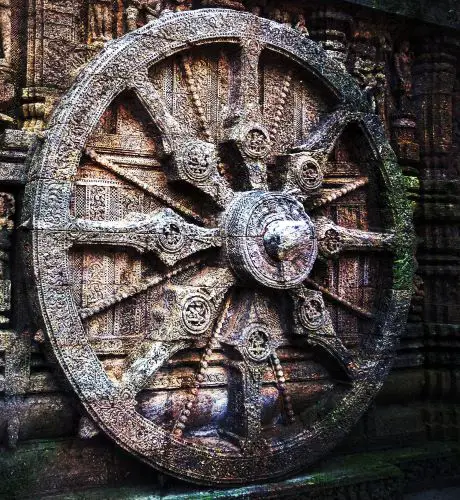June 23, 2023
We hope you enjoy our articles. Please note, we may collect a share of sales or other compensation from the links on this page. Thank you if you use our links, we really appreciate it!
There is unanimity among the analysts from India and the United States that both the countries must come closer and develop a common position on major international issues. As the largest and the oldest democratic countries of the world, the two share values, and the Indian diaspora have played a role in promoting those values. At geopolitical and economic levels, India, an aspiring global power surrounded by hostile powers, shares the US interests and concerns for its allies amidst the tense geopolitical environment in the Indo-Pacific – this is perhaps the most opportune time when the international political forces conspired to bring both the democracies closer. It is but natural to expect that the relations between the two countries will be further strengthened, and the ongoing visit of the Indian Prime Minister, Narendra Modi, will witness signing of agreements and joint pronouncements on international issues.
A close partnership between the two countries, however, does not mean both will not have their priorities and compulsions. There was a time when the world was divided into two blocs, and a few countries like India decided not to get involved in bipolar politics. Though the present situation is not the same as the world has entered a post-Cold War globalized phase, with multiple powers and options at play, there are, however, some similarities. For some analysts, influenced by the Cold War model, for India to become a true ally of the US, it must give up its autonomous status, and, as a result, abandon some of its old positions and allies. India, as the statements from its top foreign policymakers indicate, is as keen as the US to develop enduring partnership, based on reciprocity and an empathetic understanding of each other’s concerns.
I agree with the analysts who argue that India must take a strong position on Ukraine, and use its leverage with Russia to end the war. South Africa, comparatively a lesser power, has its President in Ukraine to explore peace options, a few days ago. India has not yet explored such options. Though it has officially repudiated the method of war, and emphasized multiple times that war is not an option to resolve the conflict, they sound grand pronouncements without consequences on the ground. Indian leadership must play an effective role to convince Russia that the war is undermining regional as well as global peace and security. The invasion, besides wreaking havoc in Ukraine, has impacted global politics and economics in multiple ways. India must use its diplomatic channels, both at middle and top levels, to bring Russia and Ukraine to the dialog table. As an emerging power, it cannot be on the fence perpetually, and adopt a wait and watch policy.
India can be a great partner of the US, play an active role in Ukraine, and maintain its traditional relations, even while continuing its nonaligned status. The Cold War politics discouraged nonalignment. It prompted diplomats like John F. Dulles to term nonalignment ‘immoral’, implying a country must align with either of the superpowers, there is no other option. It was driven by an egoistic approach to international relations, which undermined independent decision-making power of developing countries. The conflict theorist Edward Azar who made an analysis of the superpower rivalry and developed protracted social conflict theory argued that the psychology of binaries governing the Cold War prioritized big events at big places and undermined developments at small places, leading to marginalization of small actors. Though that analysis was made in the context of post-colonial, and Cold War, world, it is relevant today. One needs to enlarge one’s approach beyond the old psychology of binaries, and see the world as an evolving field in which national egos are replaced by mutual understanding, non-zero-sum approach, and a genuine concern for international peace and security.
Such an approach on peace and security may appear idealist in the thicket of realist international politics in which rational actors seek to fulfill their interests following the rule book of Machiavelli. The realist analysts argue, what will happen if China escalates confrontation on the border with India? Who will support India? Russia, a weakened political power, and a close ally of China, will not support India. Only the US can support India in such a possible scenario. This argument has salience. India needs the US support against Chinese aggressive policies, for military and economic development, for its UN Security Council aspirations, but the logic of bilateral cooperation does not necessarily imply India abandons its traditional relations. Apparently, the US policymakers have displayed understanding of India’s compulsions. The invitation to Modi is an indication of this understanding.
India has to walk on a diplomatic razor’s edge – developing closer bonding with the US, taking a bolder approach on Ukraine, while at the same time not jeopardizing its traditional relations. It will need prudence, astute diplomacy, and creativity, to realize these goals.




Very illuminating observations — This certainly echoes (in a practical context) your other scholarship and op-ed pieces on this and other recent conflicts. Your concept of international conflict as a projection of ego-centered ‘othering’ is very apt for the Ukraine situation, as is your advocacy of India adopting a new relationship with the US and taking a stronger stand on Ukraine with Russia. As you point out, this would not only be an ethically laudable policy change, but would be much more advantageous for India from a ‘realist’ perspective’. They could not only develop stronger ties with the US to counter future conflicts with China (while the only possible negative cost would be alienating a rapidly declining and pariah-state, Russia), but also use this opportunity to possibly lead the international community in resolving the Ukraine crisis, as peace-brokers in this situation.